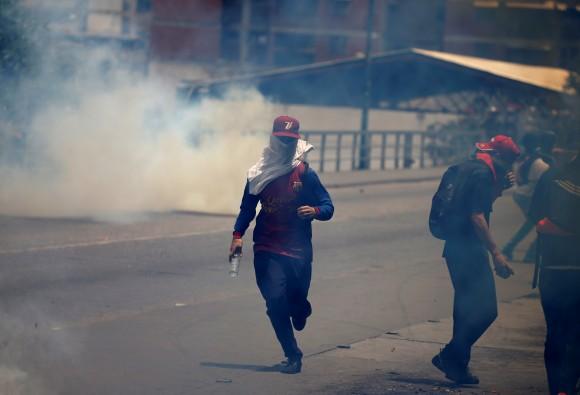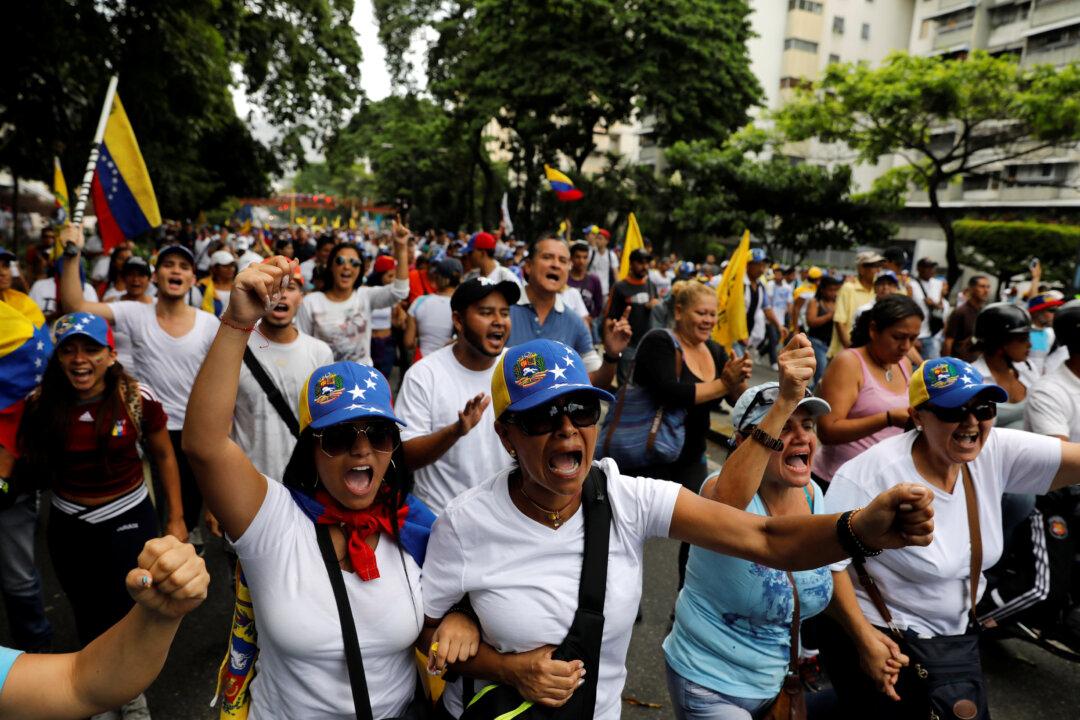CARACAS—Venezuela’s opposition began the “mother of all marches” on Wednesday, accusing President Nicolas Maduro of resorting to dictatorial measures to quash popular outrage over a deepening economic crisis.
In the culmination of a fortnight of violent demonstrations that have killed five people, protesters around the country will demand the government present a timeline for delayed elections, halt a security crackdown on protests, and respect the autonomy of the opposition-led legislature.
Recent marches have repeatedly ended in clashes between demonstrators and security forces. Youths throwing rocks have squared off against security forces spraying tear gas in melees that have dragged on well into the evening.

Demonstrators clash with riot police during the so-called "mother of all marches" against Venezuela's President Nicolas Maduro in Caracas, Venezuela April 19, 2017. REUTERS/Carlos Garcia Rawlins





